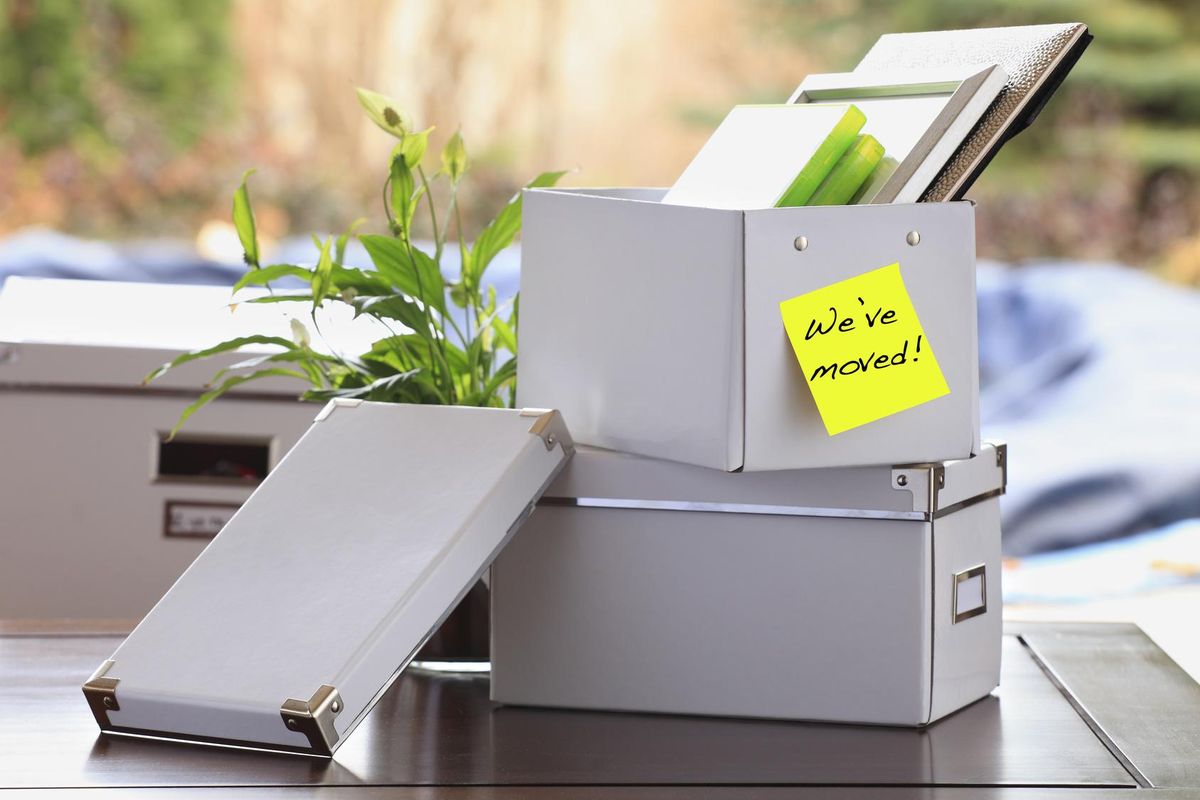
Relocating a Business Effectively Part II: Moving Services and Storage Options
Once a new office location has been secured, the moving coordinator should immediately begin looking to hire an experienced office moving company. Though many residential movers also provide office moves, investigate the company's experience in handling moves for businesses, as the process is quite different compared to moving a home. For example, depending on the size of the move, the movers will need to hire more employees and utilize larger shipping trucks to complete the move in a timely manner.
Thoroughly research business movers before selecting one. While some national companies, like Two Men and a Truck and the humorously named College Hunks Hauling Junk, offer the reputability of their brand names, it can also be advantageous to fill out an online moving quote form. Quote forms are easy ways to get in contact with multiple movers in the industry, who provide competitive estimates based on the potential cost of the office move in question. Be aware that you may receive multiple calls from these movers, who are eager to help get you started. But, before hiring a company, do a little research on their reputation. The Federal Motor Carrier Safety Administration (FMCSA) carries information regarding the company's safety history and licensing status. Check their Better Business Bureau rating, inquire about their membership status with the American Moving and Storage Association, and verify their insurance and liability coverage – 60 cents a pound is standard. The last step is particularly important, though required levels of insurance surely will not properly cover the full value of the items being moved. Damage during handling and transport does happen, so consider investing in additional protection through your business insurance account.
Understanding your moving estimate
Regardless of which company is chosen, the initial moving estimate over the phone will, almost always, be a rough one. You should also discuss whether or not you want the movers to help with packing – this can save you valuable time, though it may not be cheap. Later, an estimator will arrive at the office per schedule and provide a final cost estimate that, according to some state and federal laws, generally cannot be exceeded by more than 10% in the final bill. This practice is known as a non-binding estimate, usually based on the move's total weight, and most people can expect to pay the extra ten percent when they receive their final bill. On the other hand, a binding estimate involves reaching an agreement with the movers on a price that you are contractually obligated to pay, even if the move itself requires less work than previously estimated. The advantage here is that the bill can never exceed the agreed upon amount, unless you require additional services during the move. Get a copy of the estimate, binding or non-binding, for company records and make copies.
The office moving coordinator should, unless otherwise permitted, seek approval for the final hiring of a moving services company from company owners. Then, upon the signing of a contract, provide the movers with detailed driving directions to both the current office and the new office to avoid unpleasant delays come moving day. Distribute the phone numbers of both the moving coordinator and any owners or upper level management involved to the moving company as well, and stay in contact as the moving day approaches.
More articles from AllBusiness.com:
- Office Supply Checklist
- How to Become a More Effective Office Manager
- Small Business Owners: Do You Have a Business Data Backup Plan?
- Tips on Expanding or Relocating Your Office Space
- 7 Reasons Cloud Storage Needs to be a Part of Your Business
Investigating self-storage options
Many companies may decide to invest in a self storage option during the moving process. This service, ideally, helps store items that are not needed in the short term in secure facilities, though storage can be kept in the long term for backup of paper documents, rarely used office equipment, filing cabinets, and unused furniture. Storing unused furniture proves especially helpful if the company is downsizing to a smaller office temporarily. Several decisions must be made when purchasing self storage, including deciding on the size of the unit, whether a climate controlled unit is necessary or not, and what kind of security is appropriate for the unit. Climate controlled units, of course, protect valuables that might be damaged due to excessive heat or freezing. Security measures range from something as simple as a padlocked door, to a keypad coded lock, or 24/7 video monitoring.
Another option that companies can utilize is mobile storage. Mobile storage units, such as PODS, have many benefits for storage, and also work perfectly for very small office moves. These storage units are dropped off at your office location on a requested date, picked up when you are ready, and then dropped off at your new place of business. Alternatively, these units can be stored temporarily or for lengthier periods of time at a storage center if you aren't ready to drop them off at the new office. A self storage move can save a lot of money compared to hiring commercial or office movers, and allows the office to pack and move at its own pace.
RELATED: Moving to a New State: A Small Business Relocation Checklist



